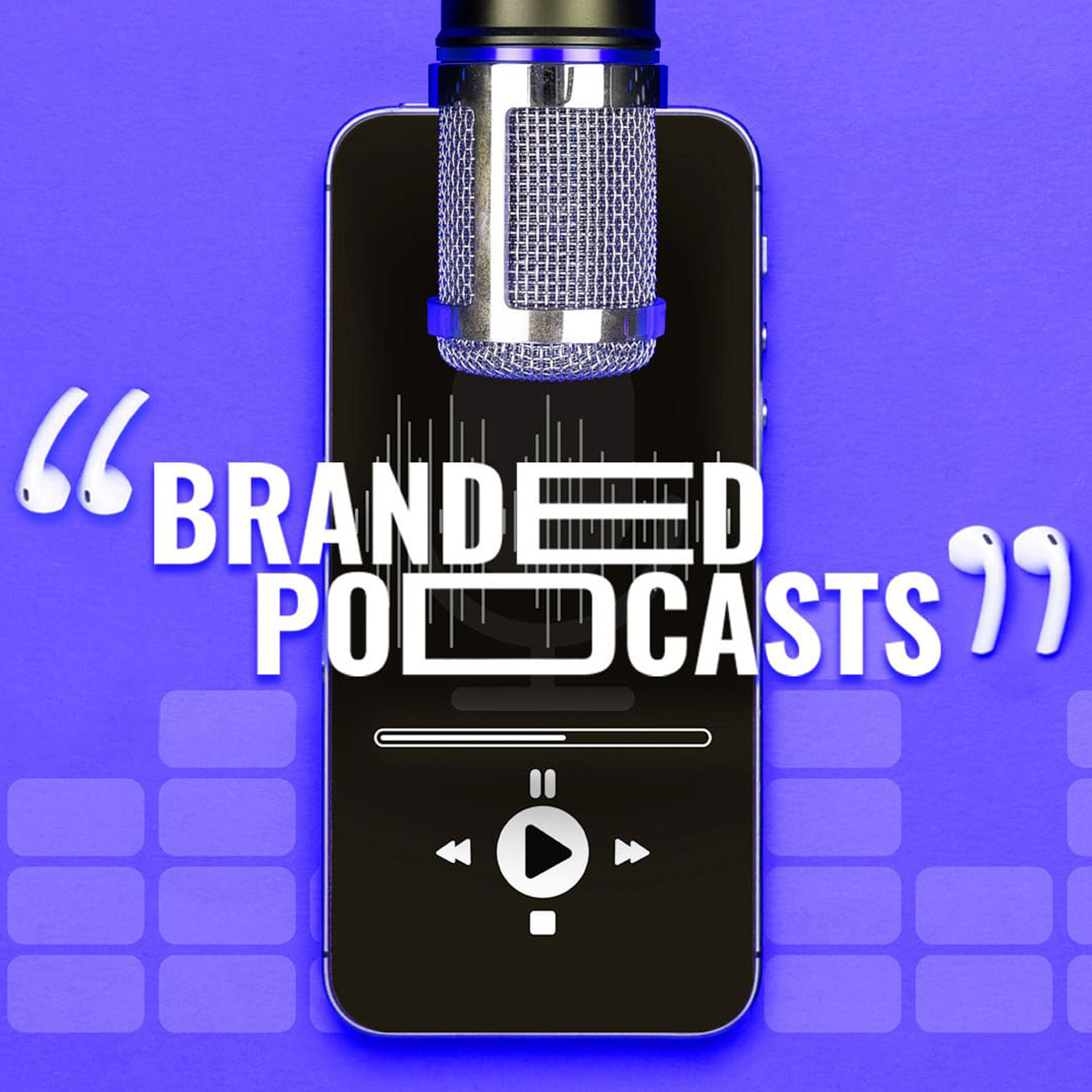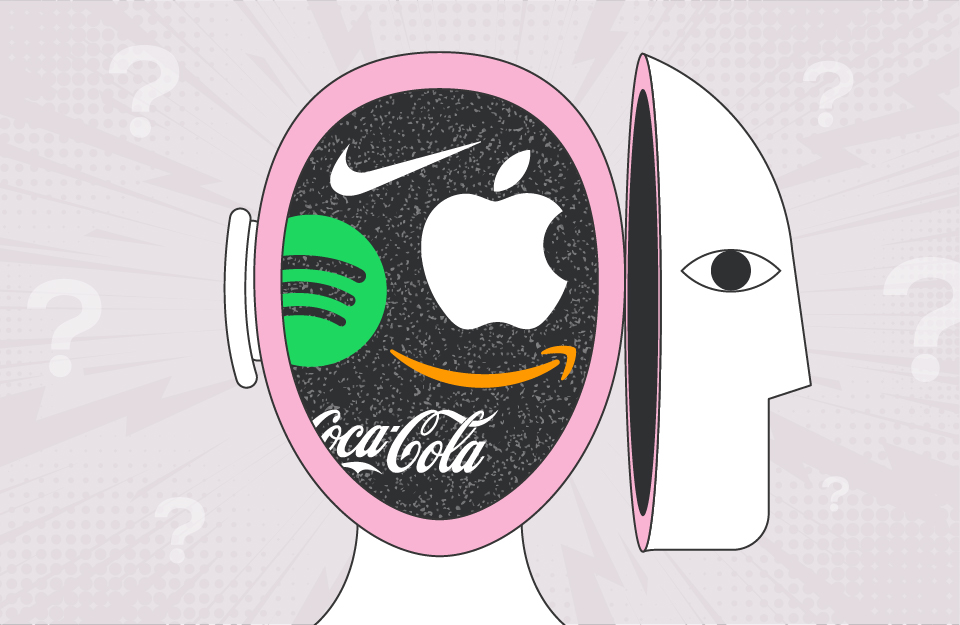The popularity of podcasts has boomed in recent years, with most people having 1 or 2 that they listen to regularly. Branded podcasts are less so and remain under-utilised as part of a broader content strategy. But why? This blog examines brand podcasts, their role in marketing and argues their case as a fantastic long-term investment.
Have you ever come across that YouTuber who ambushes people in the street with their headphones on? He runs up and asks what they are listening to. Then after a startled moment, the person relaxes, reveals what they are listening to and goes on their merry way.
It’s a really simple concept, and it works because you never quite know what someone will say. However, it is also a format that assumes every person is listening to music. Yet as we all know, in 2022, it could just as easily be a podcast.
According to the Influencer Marketing Hub, there are over 2 million podcasts in circulation, and in the US alone, 28% of people listen to a podcast weekly. Now, this might not seem like a mind-boggling percentage. However, it does equate to just over 92 million people!
So why are Podcasts so popular?
From the standpoint of a content creator just starting out (which accounts for most podcast hosts) their simplicity, both in terms of concept and production, is clear to see. Particularly when we consider the creative manpower that can be found behind some of YouTube’s most popular channels. Easier to compete, podcasts are often much less filtered and conversational. All it takes is you, a mic, a personality and an interesting opinion.
For the listener, on the other end, the variety offered by platforms such as Spotify and Apple Music means there is something for everyone. Whether you’re in the mood to learn, be entertained or laugh, unlike reading, you don’t have to stop what you are doing to enjoy. On tap when needed, we love normal people talking about normal things. Giving us permission to eavesdrop on conversations about the passions, hobbies and interests we all share.
Do They Work for Brands
As a branding and creative agency, it is our job to be abreast of the latest trends that can unlock growth and allow our clients’ personalities to shine. And when it comes to branded podcasts, we see massive potential for businesses across all sectors.
However, we also recognise that podcasting is a relatively young form of content marketing and that this creates barriers. We know it’s human nature to look for examples of success in others before believing we can do something ourselves. Therefore, many brands take the lack of their use by competitors as a reason to stick with the status quo and think they won’t work.
It is a complication further compounded by a problem that dogs podcasting and other forms of organic content. And that is their nature as a long-term investment, with a rarely instantaneous ROI. In reality, this means that a lead is rarely directly tied to one piece of organic content.
However, what you can be sure of is that when choosing between you and your closest competitor, a forward-thinking and creative approach to content can make the difference.
So what brands are podcasting, and who is doing it well? It turns out there are quite a few. For example, the workplace messaging software Slack has one called ‘Work in Progress’. Security company McAfee has one called ‘Hackable’. And travel business Expedia has one called ‘Out Travel the System’.
What these three examples seek to illustrate is the sheer variety that exists in the space and why we believe that you should never think it couldn’t work for you. However, if you are still unconvinced, here are 3 sure-fire reasons why we think a podcast could be the newest edition to your content marketing mix.
1. Introduce Yourself to New Audiences
We all know from school that every individual digests information differently, and the growth of podcasting is a testament to this. It reminds us that 30% of the population identify as ‘auditory learners’ and remember 75% of the information they hear.
When we think about this in the context of a content marketing strategy that focuses on the written word, it demonstrates the huge audience gap many brands are not hitting. It also explains the growth of platforms like Audible. Lots of people want to hear your brand’s story, they just don’t want to read about it.
Branded podcasts are a fantastic way of adjusting for this bias, and it doesn’t always mean reinventing the wheel. Why not start by repurposing one of your most popular (but lengthy) blogs and narrating it into a short 5-10 minute podcast? It is often the case that the content is there, it’s just about making it more accessible.
Platforms such as Spotify are great for this. However, for those seeking to find new audiences via podcasting, an entirely different approach can be immensely valuable. Take Slack’s ‘Work in Progress’ as the prime example. Their efforts take the lead from their target audiences, not the business. They discuss real-world topics that relate to the brand but do so in a style that the audience can relate to.
Every episode is a conversation that asks nothing in return, allowing Slack to compete strongly against other unbranded content. This achieves the goal of expanding the brand’s reach, building relationships and increasing brand recognition in a much more natural and dyadic way. Their podcast also leads me into my next point seamlessly, and that is personality!
2. Show Another Side of Yourself
As we highlighted in the intro, the absence of visuals means personality can make all the difference when podcasting. Think about people such as Joe Rogan or Gary Vaynerchuk. They could be talking about buttering toast and still retain an audience thanks to their passion and communication skills.
Understanding the role of personality in both podcasting and, in turn, brand development, we begin to see the medium’s potential for those who can visualise the link. After all, at the heart of any brand are relatable human characteristics that resonate with audiences, develop relationships, build communities and foster brand equity. And podcasting presents a fantastic opportunity to show yourself to the world.
So, just how do you successfully bring your brand to life through podcasting? Well, much of the responsibility here will rest on the shoulders of those who are willing to sit behind the microphone and lend their voice to your brand. It is these individuals who will immortalise your brand’s personality, represent it, carry it and merge it with their own. Click here to read more about the Power of Voice.
Finding these people can be tricky, but in reality, many brands have found great success by looking closer home. Chose to entrust the reigns to authentic voices of team members and those who know their brand better than any. Although they are unlikely to become the next Stephen Fry, they will undoubtedly show off another side to your brand and help people get to know you. So, look for team members who are fun, engaging, curious and above all, passionate about what they are discussing.
Don’t give in to the urge to mould hosts to suit your brand and a narrative perfectly. This lack of authenticity defeats the purpose of the medium and, in the long term, is unlikely to show any new sides of your brand personality. Any changes or growth instead feels strategic and less natural to the listener.
3. Establish Yourself as a Thought Leader
A key driving force behind your brand’s digital content should always be to hammer home your experience, knowledge, and expertise on a topic. It’s your chance to show you know your s***. All while trying to hide your full hand from the other players at the table.
For the most part, this isn’t too much of a problem as most brands know their stuff pretty well. The challenge always comes from framing their knowledge in a way that is engaging and easily digestible. While simultaneously offering value that goes beyond simply encouraging a purchase.
To be a true thought leader means looking past your brand’s own interests to continually ask yourself what a person is getting out of your content and whether they will walk away knowing something they didn’t know before. For brands, the knock-on effect of achieving this is a blog post that moves higher up google rankings or a social post with more shares, likes and comments. All the while strengthening your brand awareness and recognition as a well-informed source of info on the subject area.
Now podcasting is no different. However, as we mentioned previously, their audiences are. In practice, this means finding new ways of showing your knowledge and experimenting with formats you previously haven’t before.
Your format should not only fit your audience profile but lend itself to your personality and work to enhance it. As with video, you don’t have long to hook people in. So, decide if you want people to feel educated or simply entertained and then start experimenting.
You could find success with anything from simple one-to-one conversations to games and Q&As.
Whatever you choose, you are unlikely to strike gold the first time. But by knowing your audience and what they are talking about, sharing your knowledge and approaching topics in ways others haven’t yet tried, a branded podcast will prove its value as a way of building your reputation as a trustworthy and reliable source of information in your field.
Or, in other words …. A thought leader.



